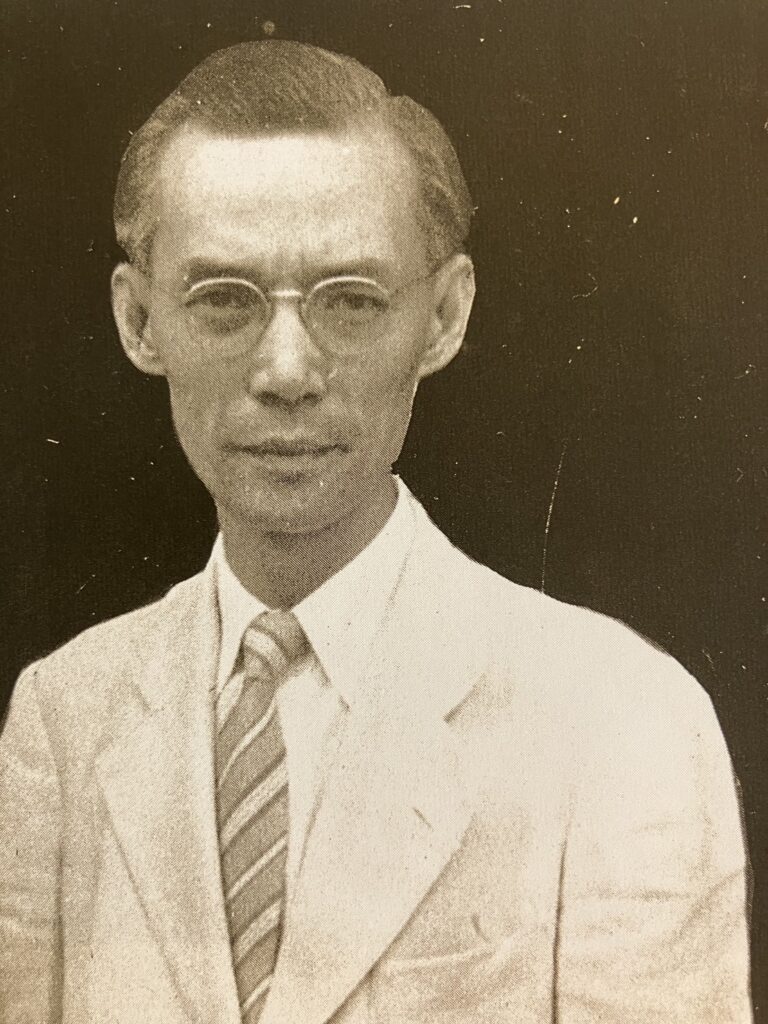
Neveu éloigné de Chen Bijun, Chen Chunpu grandit dans une certaine pauvreté. Il fait ses classes au Collège du Sacré-cœur de Canton (Guangzhou shengxin shuyuan 廣州聖心書院), mais arrête prématurément ses études en 1919 en raison d’ennuis de santé. Grâce à l’appui de sa tante, il trouve néanmoins à s’employer dans le gouvernement du Guangdong, sous les ordres de Wang Jingwei. Lorsque ce dernier devient, en 1920, le responsable de l’éducation dans la province (Guangdongsheng jiaoyuhui 廣東省教育會), il nomme Chen bibliothécaire et rédacteur.
En 1924, Chen devient membre du GMD et intègre son Bureau central comme secrétaire du bureau de la propagande (guomindang zhongyang xuanchuanbu 國民黨中央宣傳部) dirigé par son oncle. À l’hiver 1925, il fait partie des huit étudiants envoyés par le Comité politique central du GMD pour étudier à l’Université Zhongshan de Moscou. Il est chargé, avec Lin Baisheng, d’assurer la liaison entre cette délégation et le Parti. De retour en septembre 1926, il retrouve un poste en mai 1927 à Wuhan comme secrétaire du Bureau d’organisation (zuzhibu 組織部) du Bureau central du GMD. Après la rupture de Wang Jingwei avec les Communistes le 15 juillet, Chen siège au Comité permanent du GMD à Canton.
La reprise des luttes internes oblige Wang Jingwei à s’exiler une nouvelle fois en France début 1928. Chen le suit en octobre, avant de s’installer à New York, où il fonde, sur instruction de son oncle, le journal Minqi ribao 民氣日報 (Le Sentiment populaire) destiné à diffuser la propagande anti-Jiang Jieshi. De retour à Nankin en décembre 1931, il intègre le Comité des affaires des Chinois d’outre-mer (qiaowu weiyuanhui 僑務委員會), dans le gouvernement dirigé par son oncle. Chen réside chez Wang Jingwei à Chongqing au début de la guerre. Peu avant la défection de Wang Jingwei, le 18 décembre 1938, il reçoit pour instruction de conduire les enfants de Wang à Hong Kong pour les mettre à l’abri puis d’attendre ce dernier à Kunming afin d’y préparer son escale.
Cheville ouvrière de la clique du Palais (gongguanpai 公館派), Chen Chunpu occupe divers postes de secrétaire général dans les instances centrales du gouvernement de Wang Jingwei. Éphémère ministre de la Construction (jianshebu 建設部) fin 1943, il est envoyé en avril 1944 par sa tante pour la représenter comme gouverneur du Guangdong, après l’assassinat de Chen Yaozu. C’est également un moyen de l’éloigner de Nankin, où il vient d’être impliqué dans le scandale du ministère des Vivres (liangshibu 糧食部) en raison de ses liens avec Gu Baoheng. Son épouse souffrant d’un cancer, il rentre un an plus tard, laissant sa place à Chu Minyi. Le 17 septembre 1945, il se rend aux autorités nationalistes qui, le 4 octobre 1946, le condamnent à mort puis, en appel, à une peine d’emprisonnement à vie. Détenu à Shanghai, il décède le 19 mars 1966 en prison, après avoir laissé un témoignage sur le Mouvement pour la paix.
Sources : MRZ, vol. 5, p. 179-182, Chen Chunpu 2010 ; SWHB, p. 836-869 ; Chu Te-lan 2000 ; Yuan Yuquan 2010, p. 153.
A distant nephew of Chen Bijun, Chen Chunpu grew up in poverty. He studied at the Sacred Heart College in Guangzhou (Guangzhou shengxin shuyuan 廣州聖心書院), but he dropped off from school in 1919 due to illness. Thanks to the support of his aunt, he nevertheless found employment in the Guangdong government under Wang Jingwei. When the latter became the head of education in the province (Guangdongsheng jiaoyuhui 廣東省教育會) in 1920, he appointed Chen as librarian and copywriter.
In 1924, Chen became a member of the GMD and joined its Central Bureau as secretary of the propaganda bureau (guomindang zhongyang xuanchuanbu 國民黨中央宣傳部) headed by his uncle. In the winter of 1925, he was one of the eight students sent by the Central Political Committee of the GMD to study at Zhongshan University in Moscow. Together with Lin Baisheng, he was assigned to act as a liaison between the delegation and the Party. Returning to China in September 1926, he found a position in May 1927 in Wuhan as secretary of the Organization Bureau (zuzhibu 組織部) of the GMD Central Bureau. After Wang Jingwei broke with the Communists on July 15, Chen served as a member of the GMD Standing Committee in Guangzhou.
The resurgence of internal strife forced Wang Jingwei to go into exile once again in France in early 1928. Chen followed him in October, before moving to New York, where he founded, on his uncle’s instruction, the newspaper Minqi ribao 民氣日報 (The People’s Sentiment) designed to spread anti-Jiang Jieshi propaganda. After returning to Nanjing in December 1931, he joined the Overseas Chinese Affairs Committee (qiaowu weiyuanhui 僑務委員會), in the government headed by his uncle. At the beginning of the war, Chen lived with Wang Jingwei in Chongqing. Shortly before Wang Jingwei‘s defection on December 18, 1938, Chen was instructed to take Wang’s children to Hong Kong for safekeeping and then to wait for Wang in Kunming to prepare for his stopover there.
A key member of the Palace clique (gongguanpai 公館派), Chen Chunpu held various positions as secretary general in Wang Jingwei‘s central government. A short-lived Minister of Construction at the end of 1943, he was sent in April 1944 by his aunt to represent her as Governor of Guangdong after the assassination of Chen Yaozu. It was also a way to keep him away from Nanjing where he had just been implicated in the scandal of the Ministry of Food (liangshibu 糧食部) because of his links with Gu Baoheng. As his wife suffered from cancer, he returned a year later, leaving his place to Chu Minyi. On September 17, 1945, Chen surrendered to the Nationalist authorities who, on October 4, 1946, sentenced him to death and then, on appeal, to life imprisonment. He died in prison after leaving a testimony on the Peace Movement.